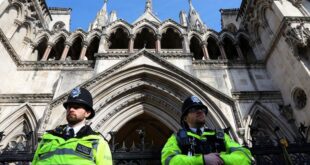The sound of your voice can betray a lack of sleep, and researchers have identified its main alterations. These findings have given rise to an artificial intelligence program capable of identifying sleep-deprived and non-sleep-deprived subjects.
According to France’s National Centre for Scientific Research, CNRS, three in 10 French people aren’t sleeping enough, getting less than six hours of shut-eye per night. This proportion has tripled in just 10 years. There are many causes for this, including exposure to screens, which not only cuts into sleep time but also delays people getting to sleep. Sleep deprivation can lead to chronic fatigue, depression and accidents.
In a study published in PLoS Computational Biology, the Paris-based Vigilance, Fatigue, Sleep and Public Health (VIFASOM) research team, in collaboration with CNRS researchers, demonstrate the possibility of detecting sleep deprivation using voice recordings analysed by a specially-trained artificial intelligence program.
For their study, they worked with a sample of 22 women, aged between 30 and 50, who were allowed to sleep for just three hours a night, two nights in a row, to identify alterations in their voices. This enabled the scientists to identify two independent effects of sleep deprivation on the voice, namely changes in prosody (sentence melody, voice modification, variation in speech rate) and timbre (clear voice vs. hoarse voice).
The researchers then trained artificial intelligence to detect differences in the submitted recordings. Using machine learning, the tool can now identify differences between the various voice recordings and thus detect sleep deprivation in certain individuals. The results of this study could pave the way for future AI-powered methods of detecting sleep deprivation through voice analysis. These could, for example, be used in certain professional sectors, where reduced alertness can have serious consequences.
The next step will be to apply the methodology to develop further vocal biomarkers characterising attention impairment or, more generally, a person’s physiological state. – AFP Relaxnews
 BeritaKini.biz Berita Viral Terkini di Malaysia
BeritaKini.biz Berita Viral Terkini di Malaysia





